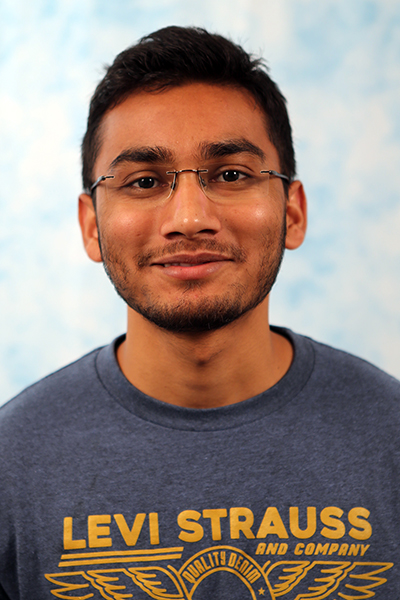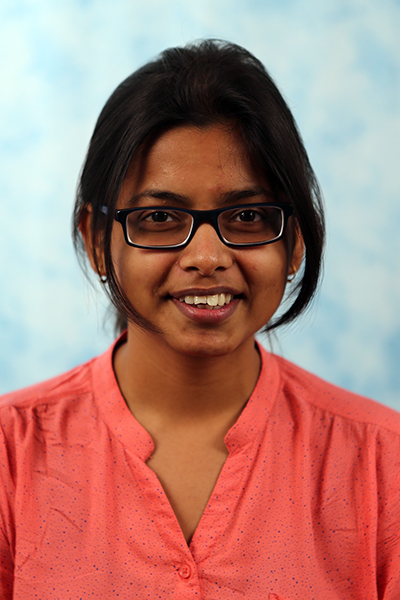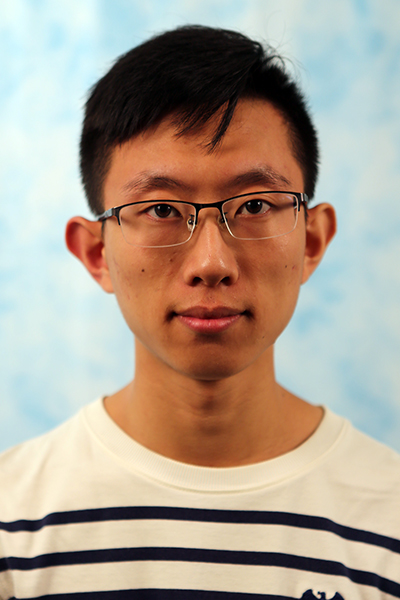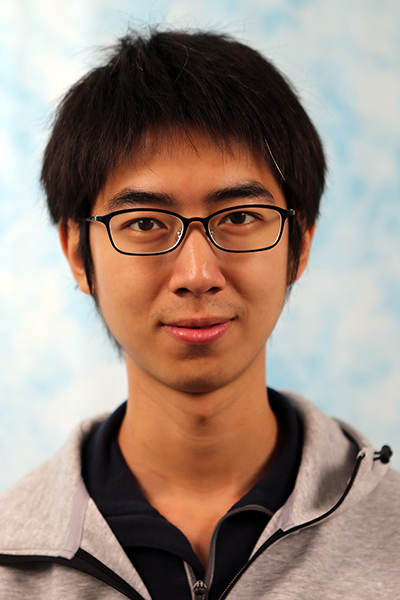MSR Speaking Qualifier
Carnegie Mellon University
Dhiraj Gandhi – MSR Thesis Talk
Title: Self-Supervised Robot Learning Abstract: Supervised learning has been used in robotics to solve various tasks like navigation, fine manipulation, etc. While it has shown a promising result, in most cases the supervision comes from the human agent. However, relying on human is a huge bottleneck to scale up these approaches. In this thesis, [...]
Carnegie Mellon University
MSR Thesis Talk – Chia Dai
Title: Few-Shot Learning for Semantic Segmentation Abstract: Most learning architectures for segmentation task require a significant amount of data and annotations, especially in the task of segmentation, where each pixel is assigned to a class. Few-shot segmentation aims to replace large amount of training data with only a few densely annotated samples. In this talk, [...]
Carnegie Mellon University
Subhodeep Mitra – MSR Thesis Talk
Title: A fast algorithm for consecutive ones with applications in item labeling Abstract: We develop and analyze a general problem in a crowd-sourced setting: users pick a label from a set of candidates for a set of items; the problem is to determine the most likely label for each item, as well as a ranking [...]
Carnegie Mellon University
Aashi Manglik – MSR Thesis Talk
Title: Real-Time Collision Forecasting from Monocular Video Abstract: We explore the possibility of using a single monocular camera to forecast the time to collision between a suitcase-shaped robot being pushed by its user and other nearby pedestrians. We develop a purely image-based deep learning approach that directly estimates the time to collision without the need [...]
Carnegie Mellon University
Kevin Christensen – MSR Thesis Talk
*LOCATION CHANGE TO NEWELL SIMON HALL ROOM 1305* Title: Computer Vision for Live Map Updates Abstract: Real-time traffic monitoring has had widespread success via crowd-sourced GPS data. While drivers benefit from this low-level, low-latency map information, any high-level traffic data such as road closures and accidents currently have very high latency since such systems rely solely [...]
Carnegie Mellon University
MSR Thesis Talk – Weizhao Shao
Title: Stereo Visual-Inertial-LiDAR Simultaneous Localization and Mapping Abstract: Simultaneous Localization and Mapping (SLAM) is a fundamental task to mobile and aerial robotics. The goal of SLAM is to utilize onboard sensors for estimating the robot’s trajectory while reconstructing the surrounding environment (map) in real-time. The algorithm should also be able to perform loop closure, such [...]
Carnegie Mellon University
Samuel Clarke – MSR Thesis Talk
Title: Robot Learning for Manipulation of Granular Materials Abstract: Granular materials are ubiquitous in household and industrial manipulation tasks, but their dynamics are difficult to model analytically or through simulation. During manipulation, they provide rich multimodal sensory feedback. We present a robotic system we constructed for investigating manipulation of granular materials. We present [...]
Gengshan Yang – MSR Thesis Talk
Title: Volumetric Correspondence Networks for Stereo Matching and Optical Flow Abstract: Many classic tasks in vision, such as the estimation of optical flow or stereo disparities, can be cast as dense correspondence matching. Well-known techniques for doing so make use of a cost volume, which is typically a 3D/4D tensor of match costs between all [...]
Carnegie Mellon University
Jack Yang – MSR Thesis Talk
Title: Surfel-based RGB-D Reconstruction and SLAM with Global and Local Consistency Abstract: Achieving high surface reconstruction accuracy in dense mapping has been a desirable target for both robotics and vision communities. In the robotics literature, simultaneous localization and mapping (SLAM) systems use depth-enabled cameras to reconstruct a dense map of the environment. They leverage [...]
Carnegie Mellon University
Kevin Pluckter – MSR Thesis Talk
Title: Precision UAV Landing in Unstructured Environments Abstract: The autonomous landing of a drone is an important part of autonomous flight. One way to have a high certainty of safety in landing is to return the drone to the same location it took-off from. Current implementations of the return-to-home functionality fall short when relying solely [...]








